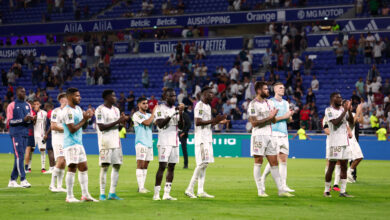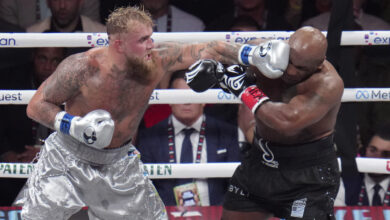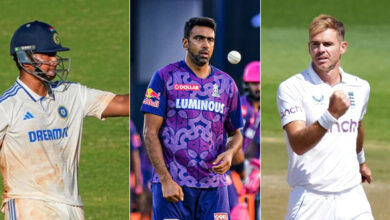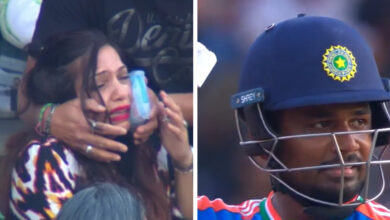The Grand Slammer: Grit and greatness of Novak Djokovic

— Roland-Garros (@rolandgarros) June 11, 2023
These upheavals would shape the destiny of a tennis prodigy. He would turn out to be the game’s most optimic retriever, a master of big pressure points, the odds-on favourite to win every fifth set and now the best-ever all-court tennis player. He would also offer to the world another facet of his country. In this Djokovic era, the immediate recall of Serbia wasn’t just brutal war criminals prosecuted the Hague tribunal or Hollywood villains with ice-cold eyes and vaguely Balkan intonations.
It can be argued whether Djokovic is the most skilled human to hit a fuzzy yellow ball but there can be no debate about his role in expanding the perception about his country. The cultural identity of the troubled young nation was softened the success of its most popular citizen. Serbia, with Djokovic as its ambassador, embodies calmness, reliability and an unrelenting pursuit of perfection.
If you ever need to go under the knife, you would want a Djokovic-like surgeon. He is a player with no obvious flaws, he never panics and waits patiently for the tide to turn. If they are honest, even the Federer and Nadal faithful would nominate Djokovic to play for them, if their life depended on a tennis game.
The Belgrade of the ’90s will make you understand that the pressure of saving multiple championship points is nothing, in case you have celebrated your 12th birthday outdoors on a tennis court. Djokovic once gave a TV crew a guided tour of where he grew up. In that interview, he re-lived May 22, 1999: It was when NATO had launched unending airstrikes to free Kosovo from Yugoslavian troops.
A message from NOL3 🏆#rolandgarros @DjokerNole @atptour pic.twitter.com/XDCLFozxIi
— Roland-Garros (@rolandgarros) June 11, 2023
As the kids gathered on court to sing “Happy Birthday” and the star among them got ready to cut the cake, an F-117 screamed overhead. The song stopped, the pre-teen birthday party, dreading doom, was wrapped in an envelope of helplessness. Those celebrating life seemed to be staring at death. This was a precursor to Djokovic’s match-day calm and the kind of pressure he faced as a pre-teen.
Another time, early during the four-month-long NATO aerial bombing, late one night startled the sudden cracking sound, Djokovic’s mother would stumble and her head would hit the room heater. Mother unconscious, father in panic, two young brothers screaming — the trauma of that day is still fresh in Djokovic’s mind. The family, after regrouping, would rush out to reach the bomb shelter. To keep pace, a scared Djokovic would stumble and fall on the ground outside his home. That’s when a bomb would get dropped not too far from him. The earth shivered under him and the memory of the close brush with death was stored in his mind forever.
With time, Belgrade would plan their lives factoring in the bombing schedule and second-guessing the fighter planes’ next target. Djokovic’s coach, and someone who he calls his second mother, Jelena Gencic, would plan training sessions at clubs in areas bombed the previous night, based on the assumption that the NATO fighter planes wouldn’t bomb the same area on successive days.
As the aerial attack continued, Belgrade saw silver linings even in the deadly trail of golden streaks the stealth bombers left behind. Djokovic says that bombing meant no school and more time on the court. His contemporary and good friend, the former World No.1 Ana Ivanovic, was always reluctant to sleep alone as a child. She looked forward to the nights in the bomb shelter as she could cosy up to her parents, siblings and grandparents. Serbia’s ’90s generations often say that bombings made them tougher, readied them for future challenges.
“I was overwhelmed with wonderful emotions. I am very, very happy and very proud of it.” 🥹#RolandGarros @DjokerNole pic.twitter.com/7Ue5UDLXg4
— Roland-Garros (@rolandgarros) June 11, 2023
To say that it was just the horrors of war that made Yugoslavia a hub of hardened champion sportspersons would be naive. Even before the ’90s, Yugoslavia, with a population less than present-day Bihar, was known for its assembly line of world-beating athletes.
The seminal book Sports in Social Yugoslavia cites the post-war influence of commun USSR and the later-day leap towards non-aligned movement as the reason for the nation whose playgrounds were always full of strong and healthy kids running around in the many state-sponsored facilities. Sport improved working ability and defence capacity. The book says it was also an affirmation of “positive achievement of the Yugoslav social transformation especially successfully participating in international sporting competition”.
🧡#RolandGarros pic.twitter.com/k2OpLzblL7
— Roland-Garros (@rolandgarros) June 11, 2023
Sport wasn’t fun and games, it was also about a nation making a larger point or a grand propagation of an ideology. Football games were occasions to assert regional identities and stadium terraces were protest sites or, at times, battlefields. It is said that it was the violence at the 1990 Dinamo Zagreb vs Red Star Belgrade football game that kicked off the Serb-Croat war, the trigger which eventually fragmented Yugoslavia. With soccer hooligans moonlighting as militia, the stadium chants would be used as battle cries as neighbours turned blood-thirsty enemies. Grudge games fuelled rage and heartbreak dominate the hory of sports in the region.
At one point in his career, Djokovic too seemed to be falling into the trap. After games, he would give the three-finger victory salute made popular Serb soldiers during their war on Croatia. But with age, he saw the light. Though he still can’t figure out why there was a bomber in the sky on his 12th birthday. The scars haven’t vanished but he isn’t digging his fingernails into them. Some time back, he raised money for flood victims from not just his own Serbia but also Croatia and Bosnia. In the middle of the French Open, he scrawled on the camera lens after winning a game: “Kosovo is the heart of Serbia. Stop the violence.” Later, when some objected, he said, “Of course I’m aware that a lot of people would disagree, but it is what it is. It’s something that I stand for. So that’s all.”
“Don’t think it is good for anybody to be stuck in the emotion of hatred and rage. I worked on myself to forgive,” he once said. The Djokovic story teaches that anger and angst can motivate you to become great but reconciliation and peace within can make you the greatest.







